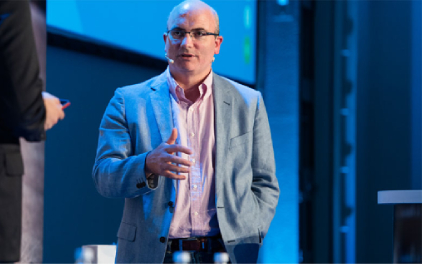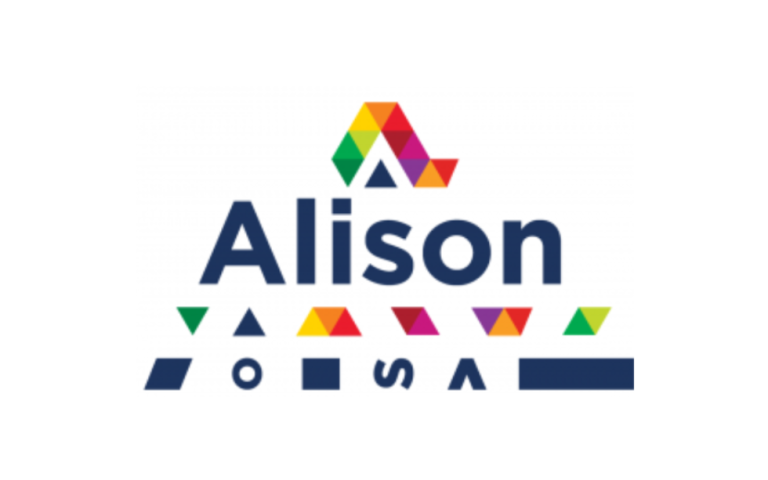In June 2020, the World Innovation Summit for Education (WISE) hosted its virtual conference on “Education Disrupted, Education Reimagined”. Alison Founder and CEO, Mike Feerick, was invited to speak at the conference. Here is an excerpt from his talk on disrupting the traditional global education system. Read to the end to discover how Alison has fulfilled his vision in 2024.
“The education system is in crisis. Covid-19 isn’t the cause, it was already in crisis. The fact is that 93% of people have never been to college and so we need an education system that is far more accessible. We need to educate everybody and we need to educate them now. The systems that are there are just too slow, too expensive and they can’t reach everyone.
I believe that the current system is overdue for disruption. I also believe in the promise of what’s possible, which has been brought about by technology and the fact that people are actually willing to use technology. Because while technology may change, behaviour often lags behind.
The Impossible Dream Made Possible
It’s possible to put all knowledge and skills training online for free. Alison has nearly 16 million learners, 3 million graduates and about 2,000 free courses. We’re not just talking about it, we’re doing. Anyone can go onto Alison and study for free. It’s a working model, going for thirteen years. We’ve proven it – you can create a scalable, sustainable platform for free education.
We’re trying to create a world where there’s a free flow of knowledge and skills training. We’re trying to drive all costs of education down to zero. And we’re succeeding.
But it’s not just about free education. We’re also in the publishing business. Many people don’t realise that on the Alison platform there’s a whole publishing universe where people learn how to use our publishing tool for free. They can then publish in any language, on any subject, at any level and get their content out to anyone worldwide. So we have a situation now in which technology is allowing us to present knowledge for free to learners, and also to give everybody the tools and the training to publish knowledge for free. We have reached a world where everyone can be a teacher, and everyone a learner.
Driving Down Costs Through Free Online Learning
We’re trying to create a world where there’s a free flow of knowledge and skills training. We’re trying to drive all costs of education down to zero. And we’re succeeding. And how we’re doing it is to scale the platform. We only have to make cents from every individual who comes on the website, through advertising, to pay our bills.
We’re disrupting an education business worth $4 trillion. We’re driving costs to zero so hopefully we can reduce the education of adults down to a business that’s in the billions, not in the trillions. This releases an enormous amount of money that would be available for other important things.
Self-knowledge and Skills Development
Now if you can learn anything anywhere you can be tested on anything anywhere. I’ve said that 93% of the world have never been to college. So how do we assess how smart they are? A lot of companies around the world talk about skill shortages and why wouldn’t there be when they are only hiring college graduates who make up 7% of the world? How then do we assess how smart people are around the world? The truth is that we can do this.
In the US in particular, there are a lot of companies that are no longer looking to formal education when it comes to hiring people. They’re setting them tests – personality tests, cognitive skills tests, testing their verbal reasoning, numeracy reasoning, abstract reasoning. These tests have always been expensive but the truth is they can be free. We’ve launched a free personality test on Alison and we’ll have free cognitive skills tests online later this year.
What this enables the world to do is for everyone to be able to find out how smart they are in various different ways and to be able to present this information to an employer.
Self-knowledge is key because there’s an enormous amount of people around the world being told they’re not smart unless they’ve paid a college an awful lot of money and received a piece of paper. But we all know this isn’t true. So how do we bring these people into play? We can identify what their strengths and weaknesses are and develop them. We can assess just how smart they are via these tests and in that way make them available for potential hiring and development online. It allows the whole world to engage.
Support For Employers
And then on the other side, what we can do is go to the employers. Most employers hire in a very lazy way. They put out a short job description and description of the person they want to hire. And they go from there. But actually they can do a lot better. Through our system they could ask a lot more questions and at the same time, open up their hiring to the world.
I believe that there’s a change coming in education and training that is going to be a tsunami. The example I often come back to is that, in 1900, the motor car was just invented and made up only 5% of transport in the US. By 1920, only 5% was not motorised and the entire carriage industry was gone. You’re going to see the same thing in education because the technology is here, the systems are free and people need them.
Delivering on the Vision: 2024
Since Mike delivered that talk, Alison has launched many additional free resources to support learners in their career and personal development:
Resources to Help Your Career:
- Career Guide – Explore thousands of career pathways, including average salaries and course recommendations.
- Career Ready Plan – Discover the career most suited to you and get a step-by-step plan for succeeding in it.
- Resumé Builder – Create a clear, concise, impactful CV that will showcase your skills and experience
Discover Who You Are:
- Workplace Wellbeing Assessment – Understand and improve your cognitive, emotional and physical wellbeing and workplace stressors.
- Realise your career dreams with Alison’s best free Workplace Personality Test. Explore your character; discover your professional strengths and weaknesses and find your perfect career match. Upskill with personalised course recommendations.
- Aptitude Test – Assess your verbal, numerical and abstract reasoning skills. Course recommendations will help you improve in your areas of weakness.
Read Learners’ Success Stories
- Testimonials – Be encouraged by positive stories of empowerment from Alison graduates.
- Graduate Outcomes – Discover why people study with Alison.
Earn As You Learn
Why not join our Affiliate Programme? It’s a simple process. If you enjoy a course and want to recommend it to others, we’ll help you share your review and earn commission when someone you’ve brought to the site completes the course and purchases a certificate or diploma.
Helping Employers to Upskill Their Workforce
Free LMS – Upskill your employees with micro-credentials from our free learning management system. Keep abreast of your team’s progress with comprehensive reports.
Follow Alison on Facebook, X, LinkedIn, Instagram, TikTok, Quora, YouTube.
Frequently Asked Questions
- What kind of courses does Alison offer?
Alison offers a wide range of courses, including career development, personal development, and skills training across various subjects. All courses are free and accessible online. - How can learners use Alison’s publishing tool?
Learners can use Alison’s publishing tool to create and publish content in any language, on any subject, at any level. This tool is available for free, enabling anyone to become a teacher and share their knowledge globally. - How does Alison help employers upskill their workforce?
Alison provides a free learning management system (LMS) that allows employers to upskill their employees with micro-credentials. Employers can track their team’s progress through comprehensive reports. - What additional resources does Alison offer for career development?
Alison offers several resources to support career development, including a Career Guide, Career Ready Plan, Resumé Builder, Workplace Wellbeing Assessment, Workplace Personality Test, and Aptitude Test. - How does Alison’s affiliate program work?
Alison’s affiliate program allows users to recommend courses to others. When someone referred completes a course and purchases a certificate or diploma, the affiliate earns a commission.








